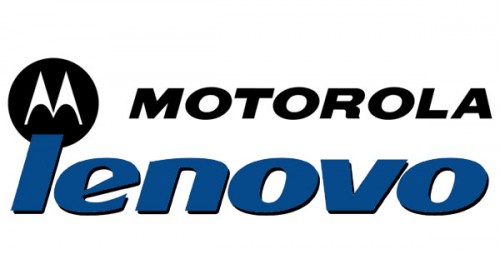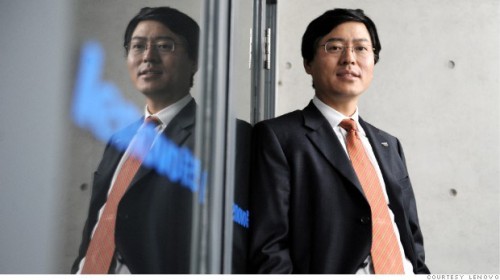Mit einer marode Telefongesellschaft sagt Lenovo, Apple und Samsung dem Kampf an
Lenovo hat von Google die Mobil-Sparte Motorola gekauft und plant nun bei den Smartphones “Großes”. Lenovo will grösser werden als Samsung und Apple zusammen.
Motorola startete im vergangenen Jahr mit zwei Moto-Handys, die Kritik war begeistert. Das Moto G bemerkenswert günstiges Einsteiger-Smartphone mit einem schönem Design und guter Leistung. Das Moto X gebaut und bestellbar in den USA. Aber wie wir Donnerstag erfahren haben, machte Google in seinen vierten Quartal einen Gewinn, aber Motorola konnte keinen Weg finden seine Verluste zu bremsen. Jetzt gehören die Problem von Motorola jemanden anderes.
Und wo einige vielleicht ein Problem sehen, sieht Lenovo eine Chance. Die Frage ist allerdings, ob Lenovo zu opportunistisch ist oder Wahnvorstellungen hat. Im Interview mit Fortune äußert sich CEO Yuanqing Yang ambitioniert und gibt als Ziel vor, bei den Smartphones mittelfristig Samsung und Apple hinter sich zu lassen. Es klingt nach Größenwahn, schaut man aber auf die PC-Sparte, so hat Lenovo dort klammheimlich die Weltspitze übernommen. Gute Geräte liegen im Portfolio, man nuss sie nur noch ordentlich in den Märkten einführen, u.a. in Nordamerika. Und hier kann der Name Motorola viele Türen öffnen. Wahrscheinlich werden in den westlichen Ländern keine Lenovo-Smartphones verkauft, sondern man setzt komplett auf die Marke Motorola.
Der Lenovo-Chef erklärte dazu, dass man sich nicht Hals über Kopf für den Kauf entschieden habe. Bereits 2011 war man an Motorola interessiert und kurz nach der Übernahme durch Google hat man sich mit Eric Schmidt von Google an einen Tisch gesetzt und die ersten Ideen ausgetauscht. Im nächsten Jahr will man über 100 Millionen Smartphones verkaufen. Wenn man bedenkt, dass Lenovo 2013 45 Millionen und Motorola 10 Millionen Smartphones verkauft haben, sind 100 Millionen eine recht ordentliche Hausnummer.
In an interview with Fortune, Yuanqing Yang says that his company seeks to replicate its ThinkPad success with Motorola.
You just spoke with Motorola employees in Chicago. What was your message to them, and how was it received?
The message to them is that this is a good combination. We are very complementary to each other. Together we can win in the smartphone industry. I wish we could sell more than 100 million smartphones together in the year 2015. I think the team here is very motivated and understands that we are very complementary. Lenovo currently has China and emerging markets. They have the U.S., Latin America, and a little bit of the European market. We are both committed to innovation. They have very strong engineering capabilities and very good relationships with carriers. So this combination is perfect.
How did you first get interested in Motorola?
It’s a very, very interesting love story. We were interested in Motorola a long time ago, even when they split into two companies, Motorola Mobility and Motorola Solutions (MSI) [in January of 2011 --Ed.].
Right after Google (GOOG) bought Motorola [in 2012 ], I invited [Google executive chairman] Eric Schmidt to have a dinner at my house. I told him, “If you think you want run the hardware business, you can keep the business; but if you are not interested in the hardware business, we definitely can handle that, take over that.”
He remembered that, and two months ago, he sent me an e-mail. I called him back, and he asked me, “Are you still interested in Motorola?” I said, “Definitely.” We started to discuss it. I went to Silicon Valley many times. [Google CEO] Larry Page invited me to his house to have a dinner. Very quickly — in just two months — we closed the deal.
You’ve said that you plan to sell more than 100 million smartphones by 2015. That’s roughly double both companies’ combined 2013 sales: According to IDC, Lenovo sold 45 million devices for the year and Motorola about 10 million. Where is the growth going to come from?
Definitely both emerging markets and Motorola markets. Even though Motorola has a lot of influence in the U.S. and Latin America, the market share is still limited. So we still have very good opportunity to grow. We want to become a very decent player in these markets.
Before this deal, your plan was to build up the Lenovo brand in the U.S. and then enter the market with smartphones. This deal changes that strategy — now, you have two brands of smartphones that are sold in different markets. Moreover, Lenovo’s product strategy is to offer a large number of models, while Motorola has a simplified product line. How will you integrate those two in the U.S. and in emerging markets?
We will fully leverage the Motorola brand in the U.S. and Latin America, just like we leveraged the ThinkPad brand in the PC space. Motorola will be our smartphone product.
So there will be no Lenovo-branded phones in the U.S.?
We haven’t made a final decision. Most likely we will leverage the Motorola brand, but it could be something like “Motorola by Lenovo.”
In China, certainly we will keep the Lenovo brand, but it is possible that we will reintroduce the Motorola brand as well. We have a full range of channels to sell our phones, so for different channels we could use different brands to maximize our sales volume.
Regarding the product portfolio, we don’t want to be playing just in the entry level or to be viewed as a cheaper brand. We want to compete in the full range of the product line, including the premium segment. Both Lenovo and Motorola have the DNA of innovation. I believe we can develop a very innovative or very premium product. Meanwhile, we should be more competitive in the entry level given that Lenovo has global scale in our manufacturing capabilities and operational efficiency.
Will you continue making Motorola phones in the U.S., or will manufacturing shift to China?
We haven’t made a final decision. In my understanding, Motorola does customization of phones [in the U.S.]. If that is what the market needs, we will definitely keep that. It is a good model, so we may replicate that in other markets.
Between Texas and North Carolina, where you make PCs, how many manufacturing employees will Lenovo have in the U.S.?
About 250. [A Lenovo spokesman clarified that all of those 250 workers are in North Carolina, and the workers who assemble Motorola phones in Texas are employees of a contract manufacturing firm, not Motorola.]
Lenovo now faces two regulatory reviews, including from the Committee on Foreign Investment in the U.S.: One for Motorola and one for your purchase of the IBM server business, announced last week. Do you think you can get cleared on both? What is your message to U.S. regulators and lawmakers who may be concerned about a Chinese company pushing into the U.S. market?
We will cooperate with all the governments to go through the process.
With Motorola, Lenovo will be the No. 3 smartphone maker worldwide. Do you think your company can catch up with Apple (AAPL) or Samsung, who are still far ahead of you? And how long will it take?
Definitely, over time. Our mission is to surpass them.
Are there similarities between this deal and the Lenovo acquisition of IBM’s PC business in 2005, which transformed Lenovo into a global PC brand?
I think there are lots of similarities. We are definitely complementary, so we can replicate the success we’ve had with the ThinkPad in the PC business. I think this is a good deal for both Google and Lenovo. Together, we can win more market [share] and have a worldwide footprint.


